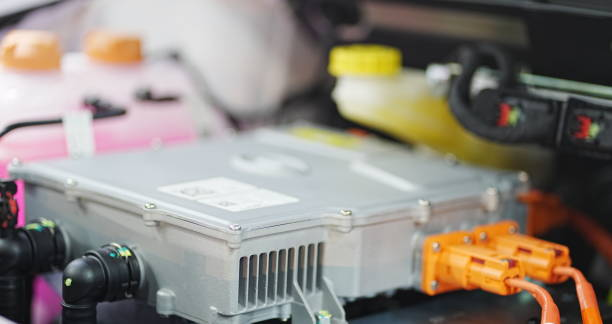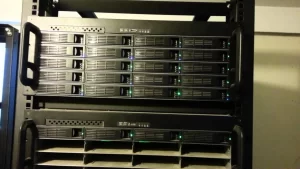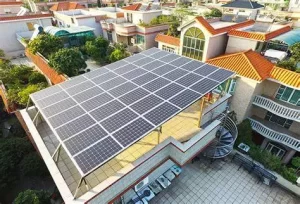Advantages and Functions of Hybrid Inverter and Battery Systems
Hybrid inverter and battery systems represent a highly efficient and increasingly popular configuration in modern renewable energy applications. These systems integrate the functions of traditional inverters with those of battery inverters to optimize energy management and usage. Here’s a detailed look at these components and the benefits they provide.
Functions of a Hybrid Inverter
A hybrid inverter is a versatile device that combines multiple functions. It not only converts direct current (DC) to alternating current (AC) but also manages the charging and discharging of batteries.
Key Functions Include
DC to AC Conversion: Converts the direct current (DC) electricity generated by solar panels or stored in batteries into alternating current (AC), which is used by most household appliances and the grid.
Battery Management:
Manages the charging and discharging of the battery, ensuring efficient charging from solar power or the grid and providing power when needed.
Grid Interaction: Can interact with the grid to either feed excess power back or draw power from the grid when solar production is insufficient.
Load Management: Prioritizes the use of solar power, battery storage, and grid electricity to optimize energy consumption and reduce costs.

Role of Battery Storage
Battery storage systems are crucial for managing energy in a hybrid inverter setup. They store excess energy generated by solar panels or purchased from the grid for use when production is low or demand is high.
Energy Storage: Stores surplus energy for use during periods when solar production is insufficient or electricity prices are higher, thus enhancing energy availability and cost-efficiency.
Backup Power: Provides a reliable source of power during outages or disruptions, ensuring that essential appliances and systems remain operational.
Load Shifting: Facilitates the shifting of energy use from high-cost periods to lower-cost times, potentially lowering overall electricity bills.
Peak Shaving: Reduces the amount of electricity drawn from the grid during peak hours, helping to lower demand charges and overall energy costs.
Benefits of Hybrid Inverter and Battery Systems
Enhanced Energy Independence: By integrating solar panels, hybrid inverters, and battery storage, users can reduce reliance on the grid and increase energy self-sufficiency.
Cost Savings: Users can take advantage of time-of-use electricity rates, store excess solar energy when rates are low, and use stored energy during peak pricing periods, thus saving on electricity costs.
Increased Reliability: The system provides backup power, enhancing reliability and energy security, especially during grid failures. This makes it an excellent choice for areas prone to power outages.
Optimal Energy Utilization: Hybrid inverters efficiently manage and distribute energy from various sources (solar, battery, and grid) to meet different energy needs. This maximizes the use of renewable energy and minimizes waste.
Environmental Benefits: Reduces dependence on fossil fuels, lowers carbon emissions, and supports a cleaner energy footprint, contributing to environmental sustainability.
Scalability: Systems can be scaled up or down depending on energy needs and future requirements. This flexibility allows users to adapt the system as their energy consumption changes or as new technologies become available.
Considerations
Initial Cost: The upfront cost of purchasing and installing a hybrid inverter and battery system can be significant, though long-term savings and available incentives may offset these expenses.
Battery Lifespan: Batteries have a finite lifespan and may need to be replaced after several years of use, which can impact the overall cost of the system.
System Size and Capacity: The size and capacity of the battery and inverter need to be matched to energy needs and solar production to ensure optimal system performance. Proper sizing is crucial to achieving the desired benefits.
In summary, hybrid inverter and battery systems offer a comprehensive solution for efficiently managing and optimizing energy use from both renewable sources and the grid. These systems not only enhance energy self-sufficiency but also provide cost savings, improved energy security, and significant economic and environmental benefits. Their ability to integrate multiple energy sources and adapt to various needs makes them a valuable addition to modern energy management strategies.
Contact us
- Email:[email protected]
- Tel: +86 13651638099
- Address: 333 Fengcun Road, Fengxian District, Shanghai
Get A Quote Now!
Related product links are available directly
Site storage products:Site storage products 归档 – (energystoragecontainer.com)
Lithium Battery:Lithium Battery 归档 – (energystoragecontainer.com)
Read more

Unveiling Photovoltaic+Energy Storage: Four Major Application Scenarios Leading the Future of Energy
In this way, the energy landscape is evolving, and one of the most thrilling developments in renewables is the integration of photovoltaics energy storage.

From Theory to Practice: Four Methods for Estimating Photovoltaic Power Generation
Photovoltaic power generation has become an essential part of modern energy solutions, particularly in home solar systems and distributed power applications

Rack-Mounted Lithium Iron Batteries: Creating Efficient and Reliable Energy Storage Solutions
When it comes to modern energy solutions, rack-mounted lithium iron batteries are taking center stage in a variety of industries. Whether you’re powering data centers, stabilizing energy for households, or keeping critical systems online at 5G base stations, these batteries have become the unsung heroes of our electrified world.

Late Night Energy Saving Tips: How to Maximize Electricity Savings During Off-Peak Hours
With rising energy costs, homeowners are increasingly exploring innovative ways to save on their electricity bills. One effective approach is utilizing off-peak hours—times when electricity rates are significantly lower due to reduced demand.
